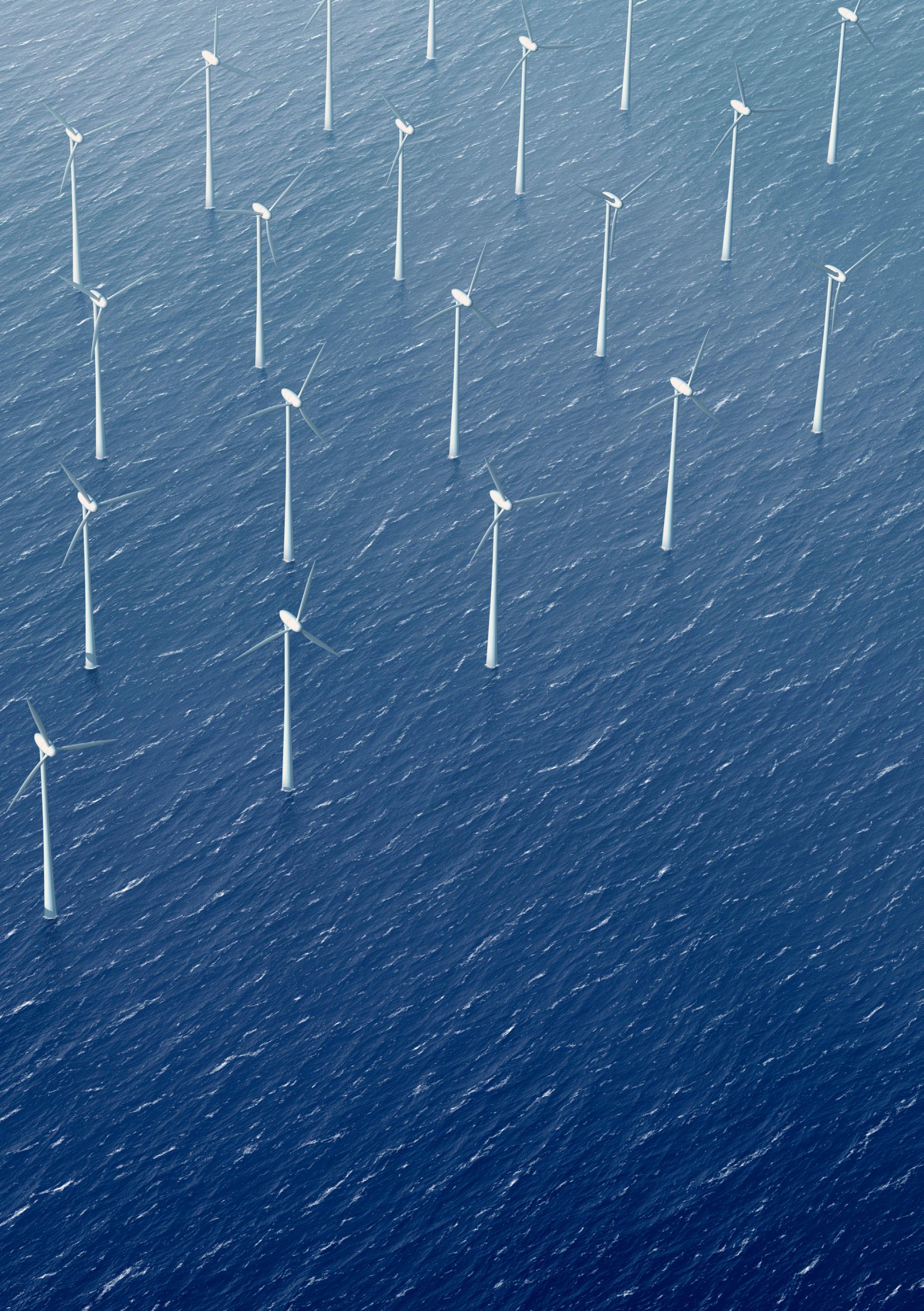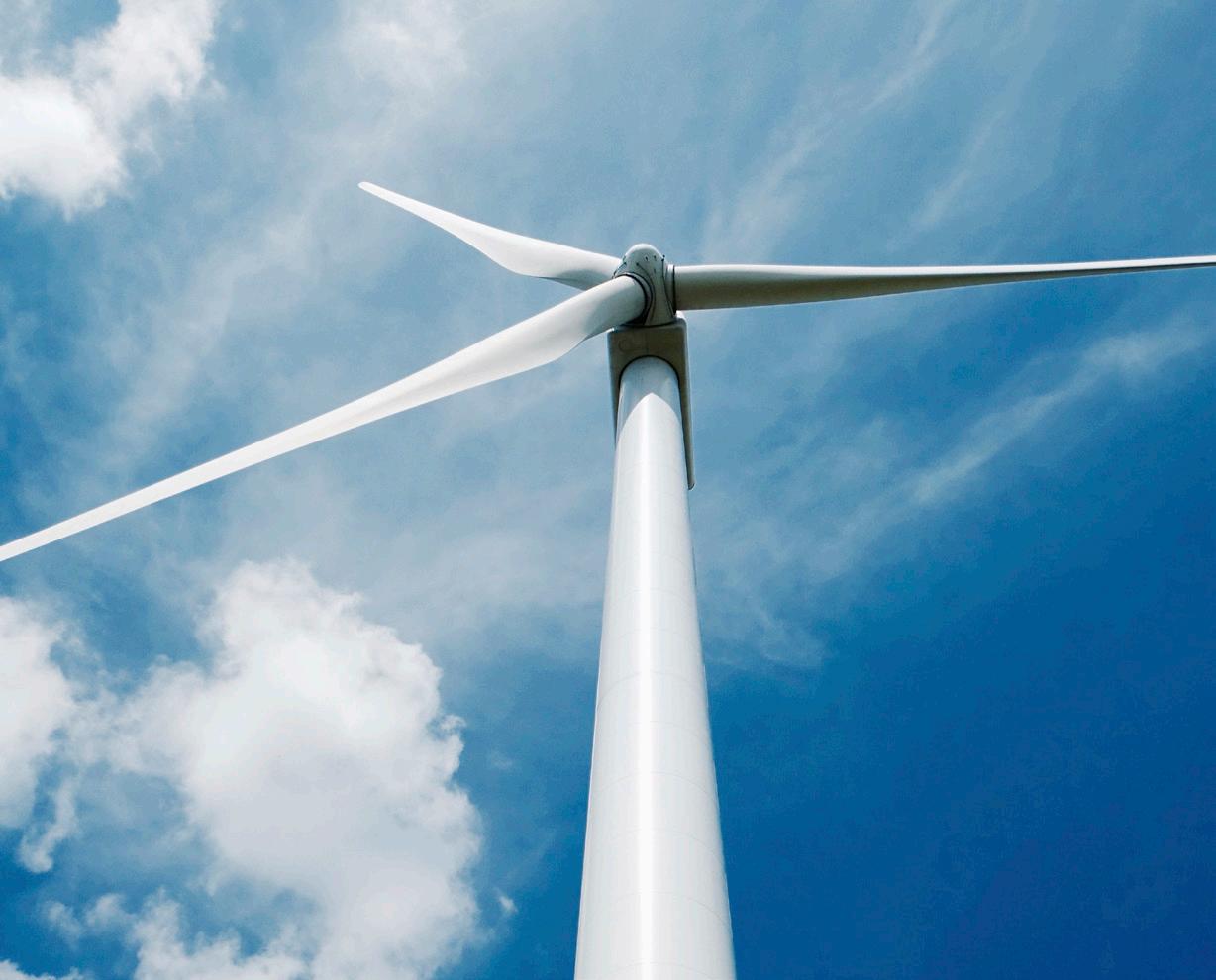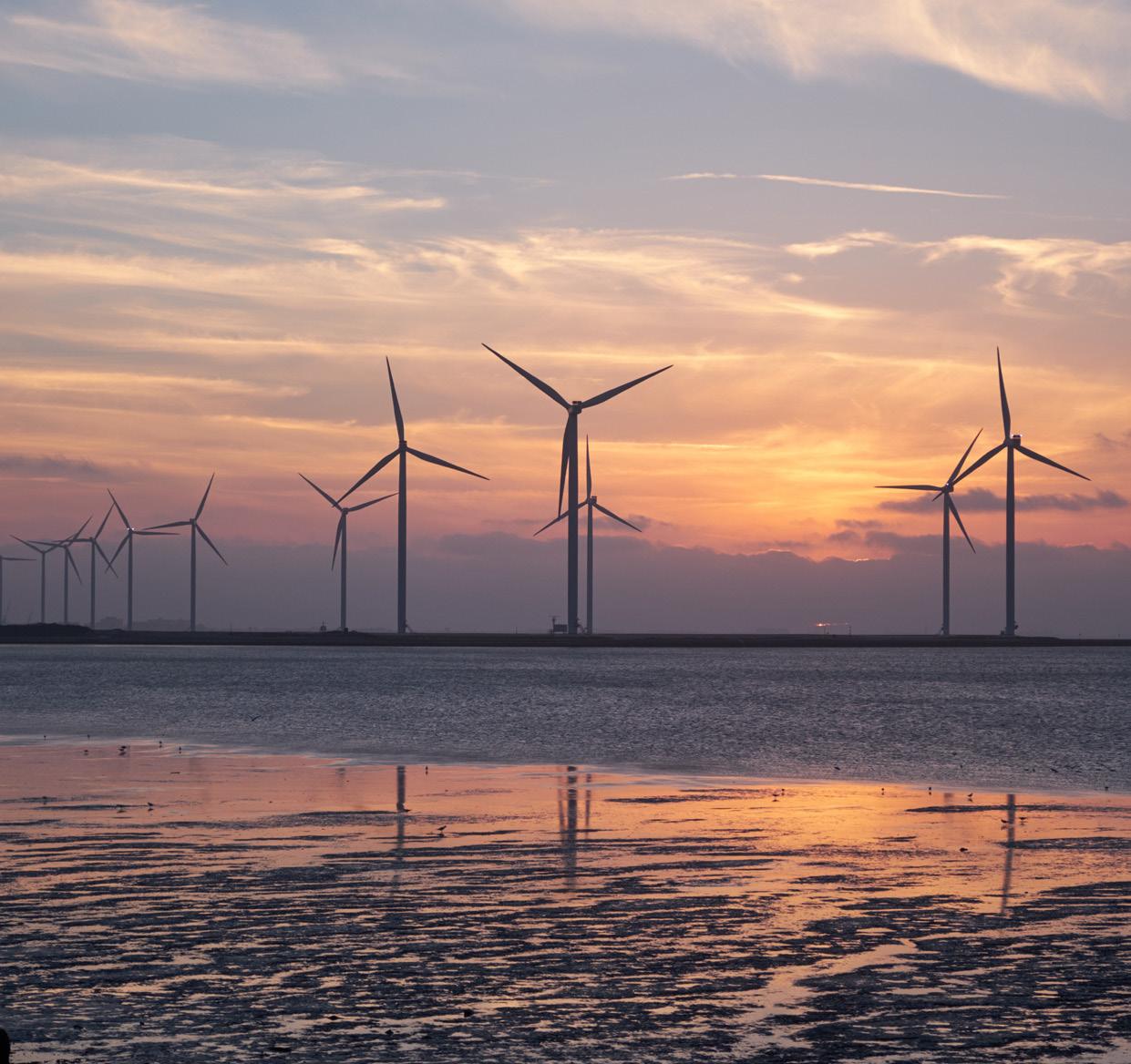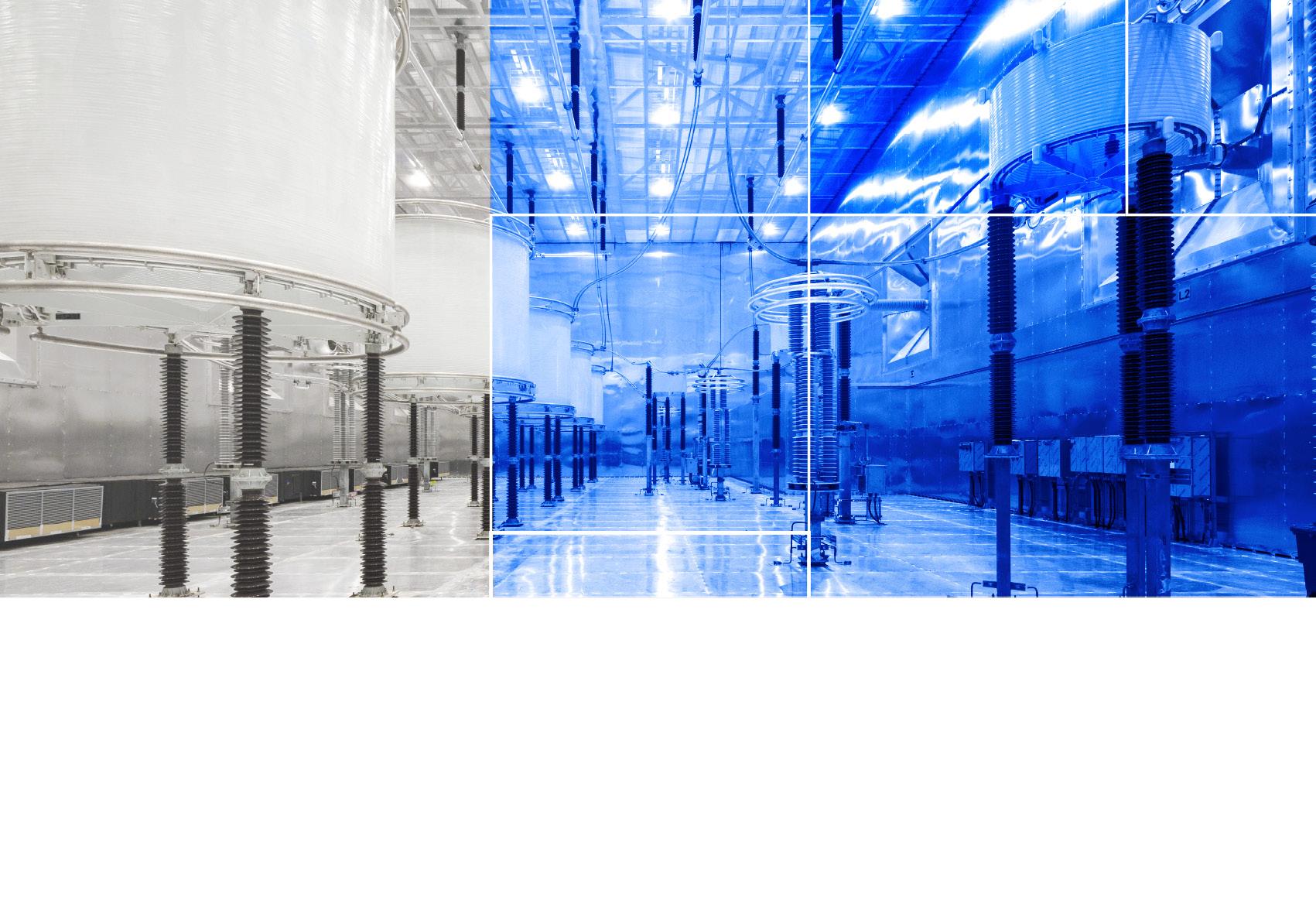Seagreen Set to Power


Majority of Scottish Homes






Scotland’s largest offshore wind farm is close to completion and ready to unleash the full potential of clean, green, renewable energy for Scotland and the UK. With the deepest foundations and most innovative jackets, this is a project that showcases what is possible through the power of wind.
PRODUCTION: Sam Hendricks
Activity on the UK Continental Shelf, in the cold and deep waters that surround the island, is changing. With the country still largely powered by natural gas and oil, the reserves are prized and precious but becoming more elusive. At the same time, the energy transition gathers pace with many hoping that it can become the base for UK supply. It’s a complicated environment and challenging when planning longer-term strategies.
the North Sea as a ‘cornerstone of the company’s strategy’. “From Glendronach to Tyra, Laggan-Tormore to Johan Sverdrup, we are developing more and more projects in the North Sea, a very promising area with an important role to play in TotalEnergies’ strategy… By building on existing infrastructure, we are creating invaluable hubs in the British North Sea, enabling us to increase our production capacity and thereby meet the energy demand of growing world population,” it says.
well as the UK energy sector.
Currently, Ponticelli employs more than 530 people across nine sites, on and offshore. The lead partner in PBS - an Aberdeen-based consortium of Ponticelli UK, Brand Energy & Infrastructure Services, and Semco Maritime – the company is embracing activity on the UKCS.
Part of the global Ponticelli Group, family-owned and headquartered in France, this regional arm is responsible for managing all TotalEnergies UK

He details more about a key job at the Shetland Gas plant where Ponticelli’s service portfolio proved invaluable.
“We are handling all of the maintenance and operations on the site there. We just completed a specific project on site to change a compressor where we engineered the internal compressor mechanism to change the process of exporting gas. We are full time there and we have around 50 people handling maintenance of that gas plant. The five-year contract was awarded in February 2020 and there is possibility for extension, which we will discuss next year with our customer,” he says.
“The plant is operated principally by TotalEnergies and is currently powering more than two million households throughout the UK. Initially designed with both HighPressure (HP) and Low-Pressure (LP) operating modes, the plant has been accustomed to operating in HP. To improve late-life recovery and ensure 15 additional years of use, Ponticelli UK, via its PBS consortium, has successfully executed a £10m engineering, procurement, and construction project to allow the use of LP mode.”
The West of Shetland gas project processes product from the LagganTormore, Edradour and Glenlivet, and Glendronach offshore fields. The efficiency of the site is paramount for the wider energy network and, thankfully, Ponticelli UK receives strategic support from a global network so ensure best practice.
“We are independent but we do have the support around commercial activities and technical capability from our headquarters in France. All Ponticelli Freres Group operations are fully aligned in terms of corporate strategy. Ponticelli UK welcomes uncompromising expertise and competencies from the global group yet enjoys autonomy to make its own decisions based on local market forces and requirements in
line with the energy transition. If we find opportunities that bring value to the group then there is no reason we cannot proceed,” says Renaud.
Expansion beyond oil and gas will likely come in the booming UK offshore wind energy space, where turbines are being erected weekly and feeding into the grid as part of a renewable and green policy which hopes to produce 50GW by 2030. With multiple construction and engineering projects underway, this is an attractive market for Ponticelli UK.

“In the offshore wind space, we want to be involved in construction and that is a very similar skillset – welding metal, assembling structures, cable pulling, cable connection, painting, insulation, and scaffolding. When we look at maintenance, there are differences but we are signatories of the CITB (Construction Industry Training Body) and that helps us to stay up to date with the best competencies in the wind industry while transferring our skills from oil and gas,” says Renaud.
He adds that the transition could help the relatively young company to bolster its client base. “We are targeting offshore wind as we participate in offshore wind farms in the South of France where we are part of pilot schemes. We are willing to start this in the UK with ScotWind projects and others coming up. There is also the idea around electrifying oil and gas using offshore wind. We are also in contact with several parties around developing hydrogen infrastructure.”
This is part of a global strategy
// SEAGREEN IS CURRENTLY THE LARGEST OFFSHORE WIND FARM IN DEVELOPMENT AND CONSTRUCTION IN SCOTLAND //

to ensure relevance of the business in emerging industry sectors, adapting again as the company has done so through its more than one century of successful operation.
“Our strategy will shift in line with changing environmental priorities,” confirms Renaud. “We are already preparing for these changes, putting our people first by ensuring they are Connected Competence compliant. Connected Competence commands a base level of technical competence assurance and aims to recognise skills transfer which will support a resilient, transferable workforce and aid the energy transition.”
According to some reports, North Sea oil and gas production might only have 10-15 years left before pressure from climate targets and environmental
activism becomes too much. But even after this point, engineering and maintenance will be ongoing, and decommissioning will open up a new market for Ponticelli (with experts suggesting 600 installations will be decommissioned in the North Sea over the next four decades). There is also the reengineering process – turning platforms into stations for CCUS – where the company can utilise its vast skillset to aid. In the energy sector, the Ponticelli Freres Group is an evolving brand.
“Repurposing assets for a new or different function is a new concept in the industry. We are seeing this in the Netherlands and Denmark, using old platforms to inject carbon into disused wells and we expect to see this in the UK as well.
“We remain positive and expect growth in both O&G and renewables within the UK market,” states Renaud.
The family ownership of the business allows for longer-term thinking, and means the business can look beyond profits for the next quarter. Moving into the renewable energy space is only logical over the coming decades.
“Our vision is much more longterm,” Renaud highlights. “In 2021, we just passed our 100-year anniversary. The family of the founders that sit on the Board today talk about wanting their grandchildren to be involved in the company in the future, not about wanting a certain profit forecast for the end of Q1. Of course, we have financial targets to be sustainable, but we hold a longer-view on strategy compared to a shareholder-driven organsation.
“We are committed to being around 100 years from now,” he reinforces. “The long-term strategy - already underway - will see continued global investments to support change in the world.”
Like most organisations active on the UKCS, and in the industries served by Ponticelli, sustainability is only outweighed as a long-term goal by safety. At group level, Ponticelli is proud of its safety record and has created a culture where safe operations are non-negotiable and ‘zero harm’ is a daily focus.
“Safety, People, Wisdom, Performance, and Integrity are long-standing principles of the company, still held today. These are the foundations upon which our success is built,” says Renaud.
Safety is the core value of TotalEnergies UK and must be at the heart of every decision whether direct employee or contractor, offshore or onshore. Clearly, the synergy here is strong and allows the relationship to thrive.
“Safety is good business,” further Renaud. “Safety is an integral part of the group’s DNA and Ponticelli UK is committed in our pursuit of a zero-accident working environment
to ensure that the workforce thinks safe, works safe, and stays safe. Our robust safety culture and performance leads to operational excellence and retention of our talented workforce.”
The focus on safe working conditions was highlighted through the turbulence of the company’s establishment in the UK. Ponticelli set up in Aberdeen just three months before the start of the Covid-19 pandemic and Renaud was forced to adjust quickly and manage in a completely new way. Digital meetings and communication, and effective protection of people was quickly delivered thanks to the company’s already robust safety policies.
“It was a difficult start,” admits Renaud, who moved with his family from France to Scotland after 18 years with the company across
various geographies. “To start a new contract at that time where we had no capacity to meet people was a real challenge. We are confident that our performance and what we are doing does bring value to our customer, so it has been a big success.”
Despite this early challenge, the company continues to thrive and is hungry for further growth. In the UK, the energy sector is the key focus and the there are potential opportunities in the downstream space at refineries.
“We are in oil and gas and we strongly believe it is necessary for years to come. We still need gas to heat the home and fuel to drive the car until there is a complete change. We are not there yet. We will not stop in oil and gas and focus only on renewables. Of course, we want to be efficient and sustainable but as long as there is
• Grid Solutions

• Design & Construction
• Procurement
• Commissioning
production on the UKCS we are here to support our customer,” says Renaud. Even with the long-term changing nature of the UKCS and the constant review of North Sea strategy, there will be construction, engineering, and maintenance, and the UK’s onshore facilities will require overhaul, renovation, and preservation. Here, Ponticelli has always been one of the best. Renaud is certain about the deployment of expertise.
“There are of course difficulties, but we are looking forward with positivity. We are investing in business development and we believe in the market,” he concludes.





